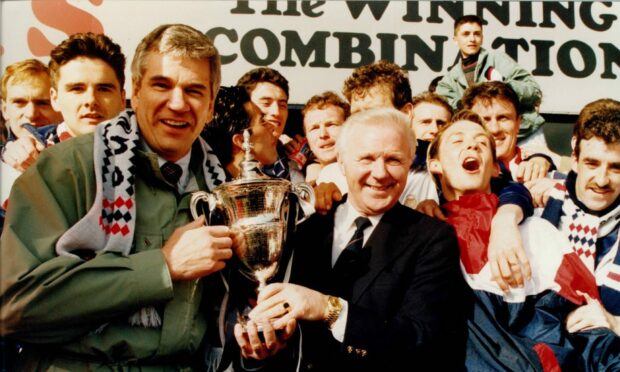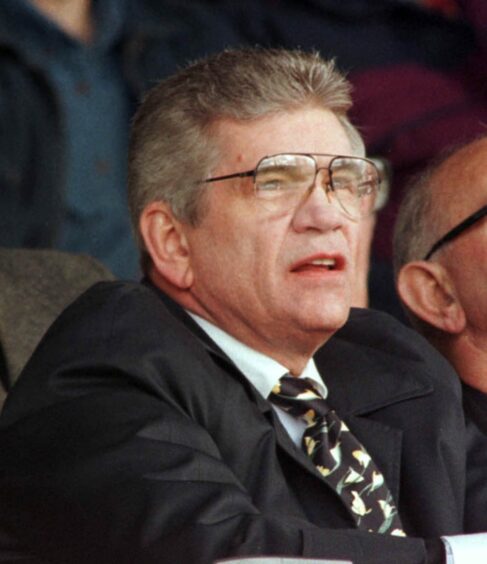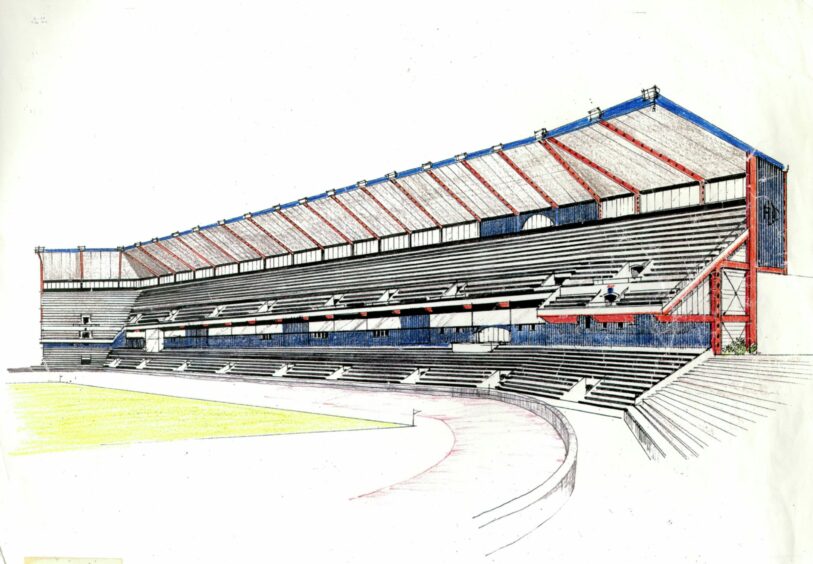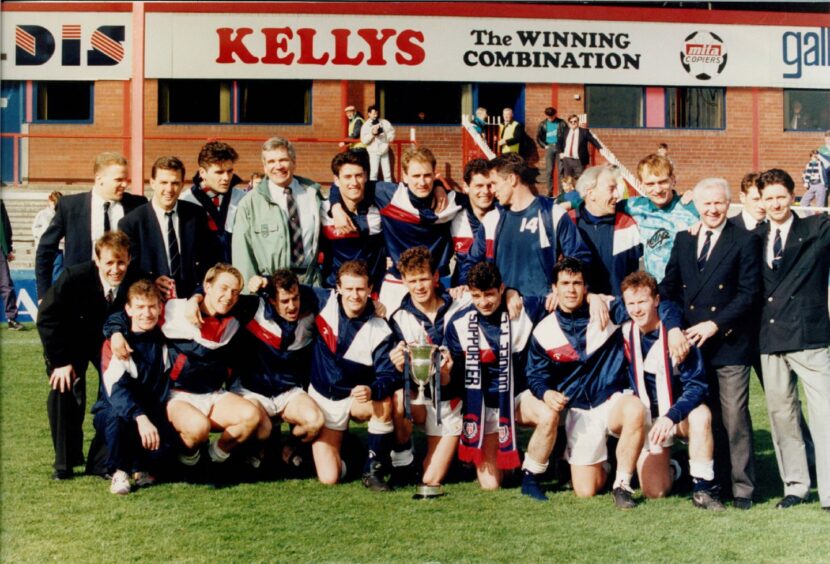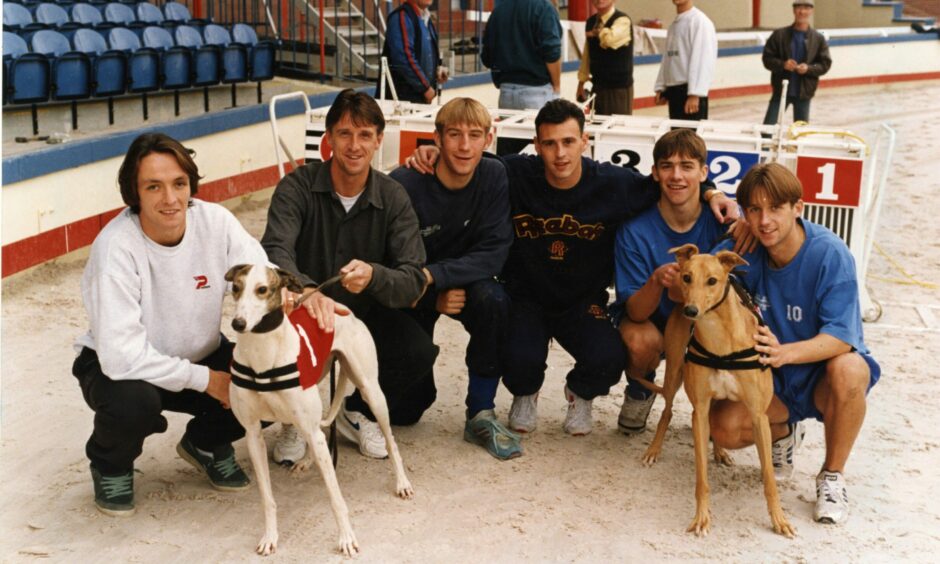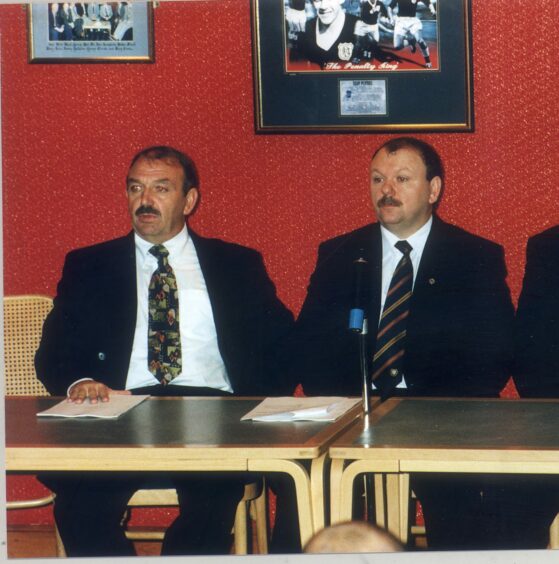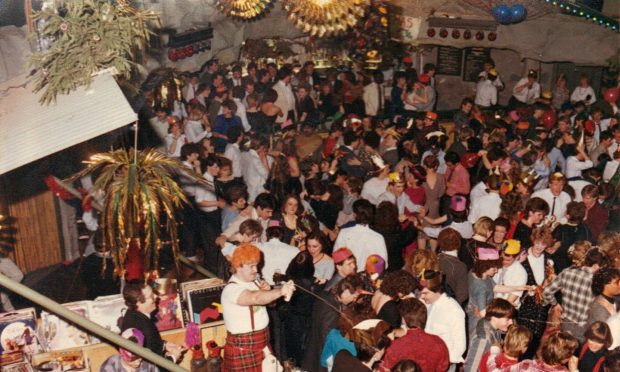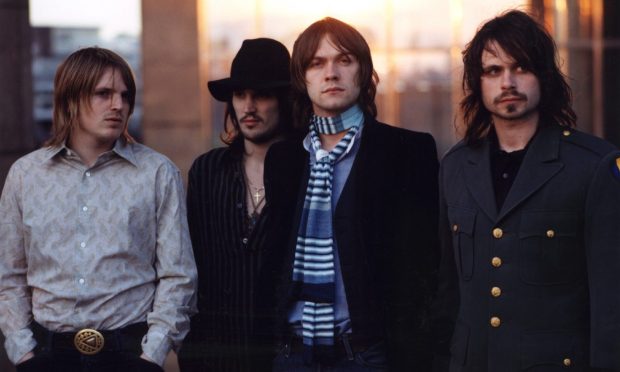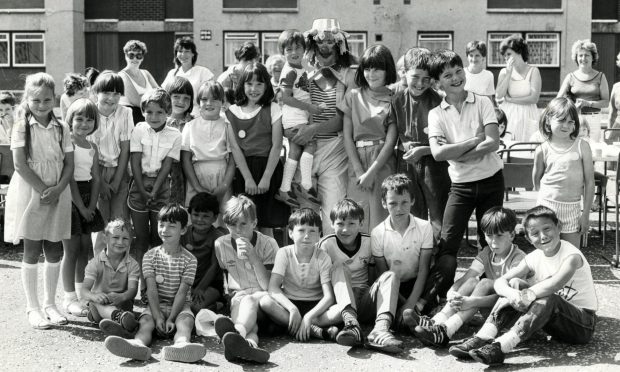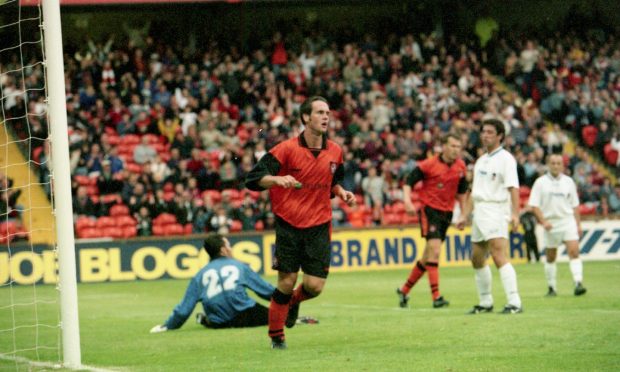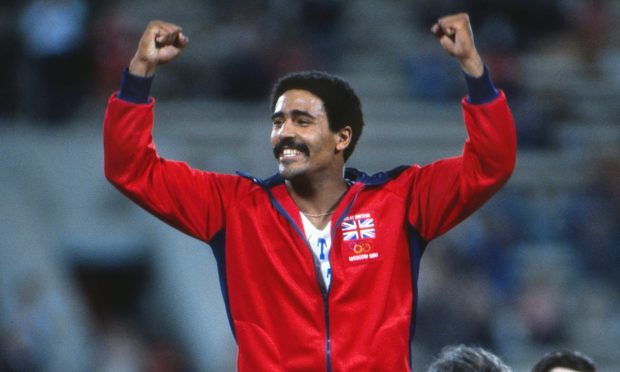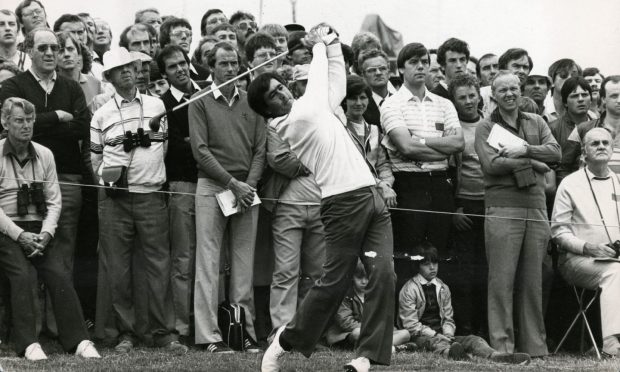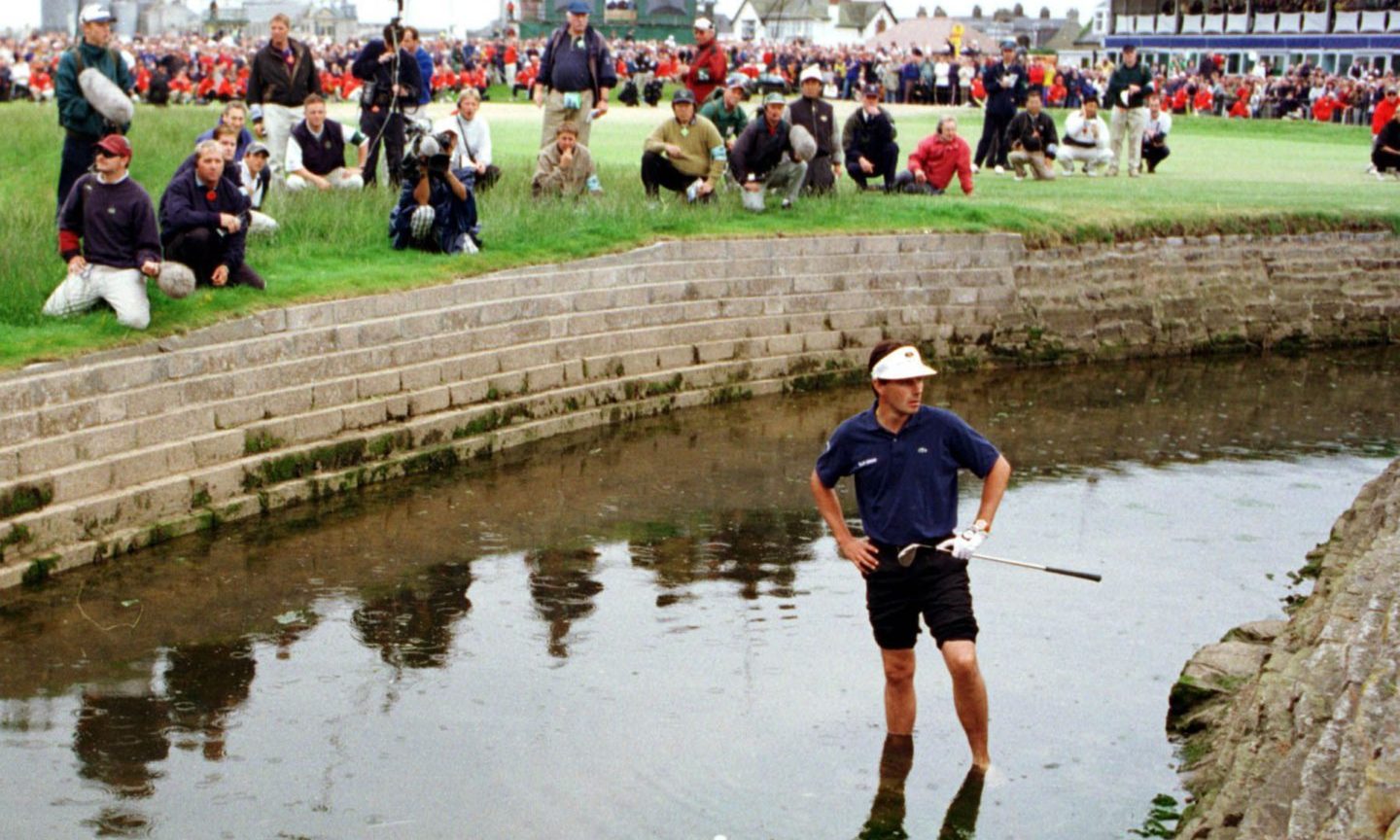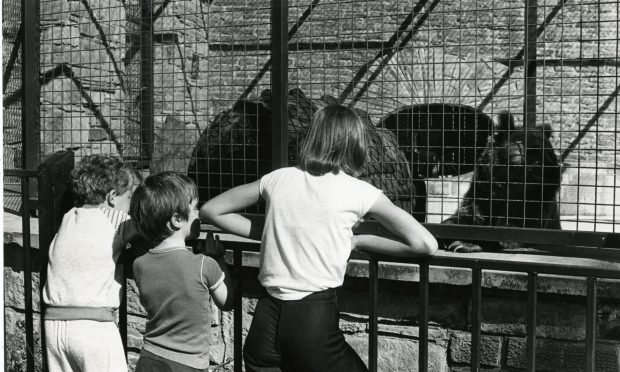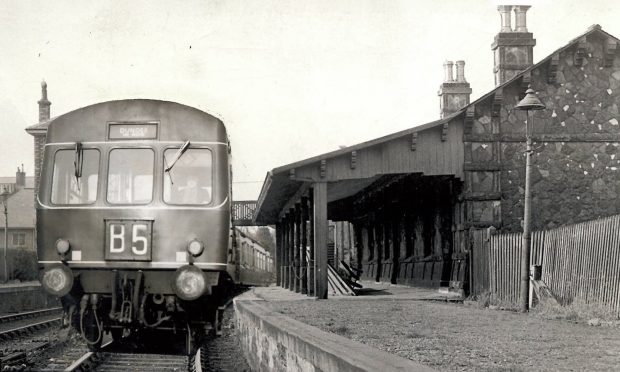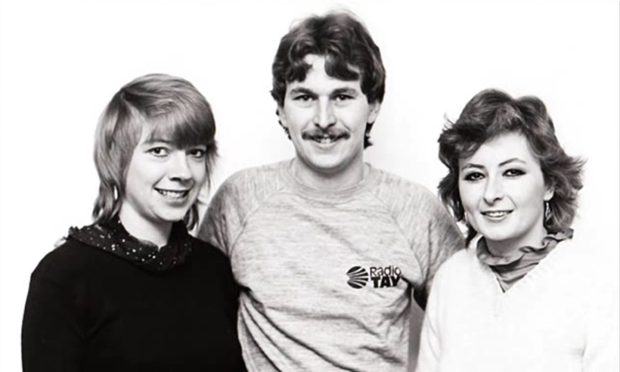Even as larger-than-life characters go, former Dundee FC owner Ron Dixon was something else.
Physically imposing and possessing the ability to talk the hind legs off a donkey, seldom, if ever, did he walk into a room without becoming the centre of attention.
Dixon arrived at Dens Park in January 1992 after saving the club from extinction and appeared to have a chequebook to match his mouthy ambitions.
He said: “When I walked through the door for the first time, I was met by three bankers. They said ‘enough was enough’ and they were calling in the receivers.
“However, I talked to them and they agreed to accept a cheque for a five-figure sum and wait until it cleared before doing anything.”
Ice hockey was his game. He never claimed to have a great knowledge of what he called soccer and would refer to goalkeepers as ‘goal tenders’.
The Canadian millionaire got involved at Dens after buying and eventually disposing of the Kingsway ice rink to the William Low supermarket chain in a £1.9 million deal.
Dixon got the impulse to buy the Dens Parkers while playing poker with Malcolm Reid, who had first introduced him to the Dundee ice hockey scene.
Reid became a director and former Rangers supremo David Holmes was appointed vice-chairman and put in sole charge of running the football side of things.
Dixon found it easier to rise in mid-afternoon and work late into the night and life when he was at Dens was seldom anything other than interesting.
Dixon immediately mapped out an £8m plan for a conference centre and ice rink to be built under a state-of-the-art, new 8,500-capacity south stand at Dens.
The ice surface in the 4,200-capacity rink would have been adapted to allow the hosting of basketball, boxing, exhibitions and conferences.
Dixon wanted to increase the capacity of Dens to around 25,000 and both ends of the ground, then undeveloped, would also have been upgraded.
He also pledged to make Dundee into a side capable of challenging the Old Firm.
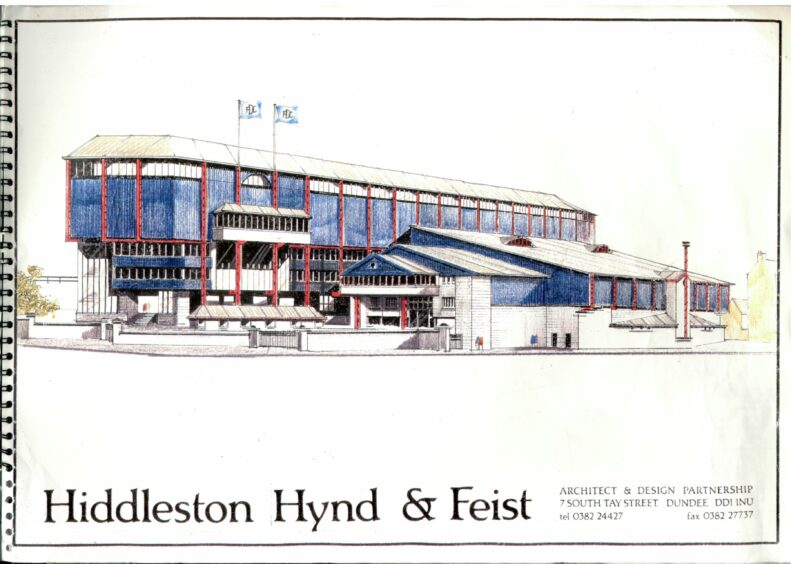
“My aim is for Dundee FC to be among the best in the land and we will do it,” he said.
“I cannot see anything stopping us.”
That never happened, but the ensuing years were a mix of highs and lows.
Shortly after he took over Jim Leighton signed from Manchester United for a club record fee of £200,000, after notoriously falling out with Alex Ferguson.
Iain Munro looked a safe bet to lead the team to promotion, but was still axed in favour of fedora-wearing Simon Stainrod, who completed the job successfully.
The team won the First Division and, for the challenge of the Premier League, Dixon splashed out on big-money signings of players like Dušan Vrťo, Kevin Ratcliffe, Graham Rix, Morten Wieghorst, Dariusz Adamczuk and Piotr Czachowski.
In their first season back in the top flight, Dundee had made a sticky start, losing their opener at home to Falkirk and then drawing with St Johnstone and Airdrie.
The best team in the country were up next at Dens.
Rangers were four titles into their sequence of nine-in-a-row and included star men like Ally McCoist, Mark Hateley and big-money signing Alexei Mikhailichenko.
For all the big names, captain Billy Dodds with a double, Ivo den Bieman and Ian Gilzean were the goal heroes in a thrilling 4-3 success for Stainrod’s men.
Their struggles continued for a while after that but Stainrod’s cosmopolitan team would do enough over the course of the season to retain their Premier League place.
When he was in the country and went to matches, Dixon was as keen as any fan to see the team win and wanted to be entertained into the bargain.
Dixon felt the city could sustain only one team and dreamed up big plans of taking over Dundee United and amalgamating the two teams.
He dropped the bombshell when he called the whole club together for a meeting one day before telling them: “Right, that’s us, we’re going to buy that lot down the road.
“Let’s have some pizzas and champagne.”
Dixon got no real backing from his counterparts at Tannadice.
Like many of his ideas, those plans never came to fruition and history will record his reign at Dens Park as a time when the team struggled on the park.
In 1993, after Stainrod became director of football, Jim Duffy became manager and relegation from the Premier Division followed that season.
At Dens Park he did open a greyhound racing track in 1994, but, despite a six-figure investment, that floundered after a couple of years.
Splashing out sizeable sums on players proved expensive errors, and, after he paid a £350,000 VAT bill, Dixon famously said: “Not a thin dime more.”
Dixon largely left his Dundee-based directors to fend for themselves and the Dark Blues were living a hand-to-mouth existence.
Duffy, along with directors Malcolm Reid, John Black and Nigel Squire took turns at paying the players’ wages plus other running costs.
In these days Duffy also helped Dundee survive by putting up Adamczuk in his own home, plus buying furniture for fellow Polish international Czachowski.
In 1995 the team did reach the final of the League Cup, only to go down 2-0 to Aberdeen at Hampden, but by that stage Dixon wanted to recoup his investment.
Between that final and him selling up in 1997, Dixon did not return to Scotland and paid little attention to the affairs at Dens Park.
Lifelong fans Peter and Jimmy Marr – who were well-known figures in the pub industry and had spent five years in the junior ranks running St Joseph’s – raised £1 million against their nightclub to stop him shutting the club.
The £1.3 million deal, which included the repayment of Dixon’s outstanding loans as well as 6p per share for his 72% holding, had been agreed.
However, minority shareholders, who had paid 60p per share at the 1992 share issue, deemed this unsatisfactory as they would be well out of pocket.
Eventually, a figure of 14p per share was decided and, by mid-June 1997, the Marrs were given the green light to take control.
‘We bought the club to keep it alive…’
Peter Marr said Dixon was on the verge of selling the players, bolting the doors and walking away.
“Dixon wasn’t Dundee at heart – and he was killing my club,” he said.
“He just wanted his money or he was shutting the doors. It really was as simple as that.
“What choice did we have? If we walked away, this Canadian was going to close our club, our father’s club, the city’s club.
“We were in a position to safeguard its future – to make sure our kids and their kids and everyone else in the city had the opportunity to experience what it is to be a Dee.
“When it came down to it, it was an easy decision: we bought the club to keep it alive.”
In 2000 news came that Dixon, by then 61, had been killed in a car crash in Mexico, where he owned a number of bars in partnership with his daughter.
This tragedy was the second time a car crash claimed a member of the Dixon family, after son Sean was killed in a road accident in the 1980s.
Dixon was loved by some and hated by others during his time in Dundee but few who met the Canadian millionaire will ever forget him.
More like this:
Finding common ground: When Dundee United and Dundee FC planned to share a stadium
Diego Maradona: Argentine legend almost played for Dundee during Bonetti era
